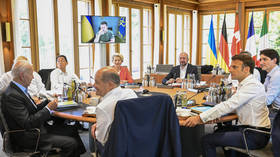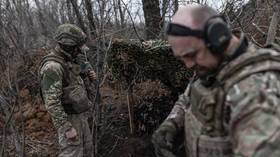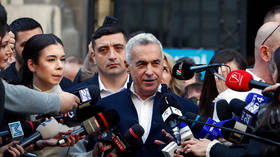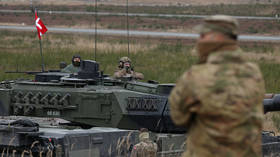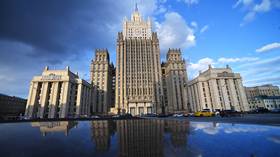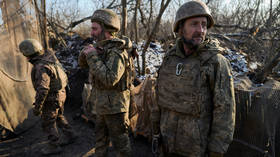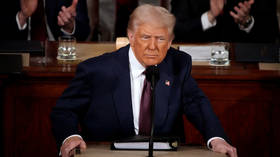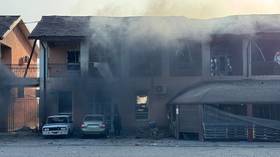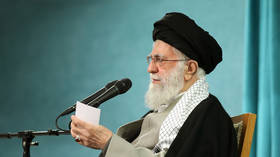UK raises concerns about Ukraine fatigue
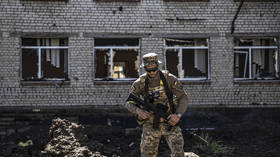
The West must prepare to back Ukraine against Russia in the long run and not give in to conflict “fatigue,” British Foreign Secretary Liz Truss has stated.
Speaking to European media on Tuesday, the foreign secretary stressed the importance of Western unity over military and humanitarian aid to Ukraine. “What I am urging is [that] we continue to stick to that and we absolutely don‘t show any signs of fatigue or tiredness or giving up,” Truss said.
“What we cannot have is some uneasy peace, where Russia is still present in Ukraine. That is not going to work.”
Truss said a victory for Kiev would be Russian troops leaving “all parts of Ukraine [that] have been illegally occupied.” The foreign secretary made it clear that Moscow would also have to give up Crimea, which voted to leave Ukraine and join Russia shortly after the 2014 coup in Kiev.
Asked if Britain was ready to accept that it may end up supporting Ukraine for 10 years, she replied: “We have been very clear, we are in this for the long haul.”
Prime Minister Boris Johnson also urged avoiding “Ukraine fatigue” and continuing to support Kiev against Russia. The PM repeated his message during the Group of Seven (G7) summit in Germany over the weekend. “Realistically there is going to be fatigue in populations and politicians,” he said, adding that the West must not waver in its support for Ukraine.
Russia attacked the neighboring state in late February, following Ukraine’s failure to implement the terms of the Minsk agreements, first signed in 2014, and Moscow’s eventual recognition of the Donbass republics of Donetsk and Lugansk. The German- and French-brokered protocols were designed to give the breakaway regions special status within the Ukrainian state.
The Kremlin has since demanded that Ukraine officially declare itself a neutral country that will never join the US-led NATO military bloc. Kiev insists the Russian offensive was completely unprovoked and has denied claims it was planning to retake the two republics by force.
